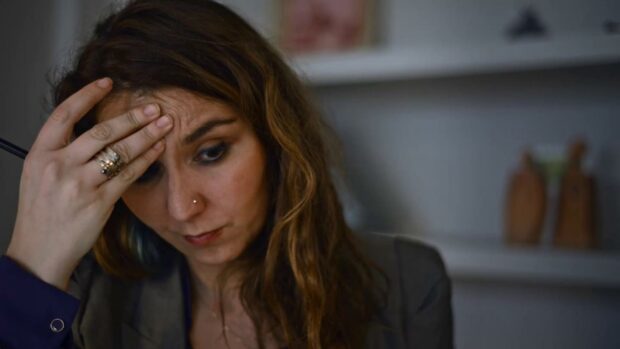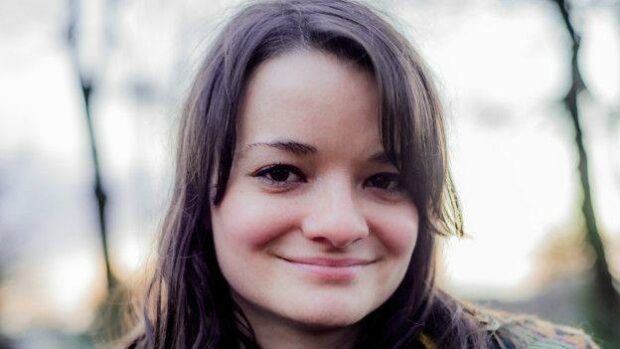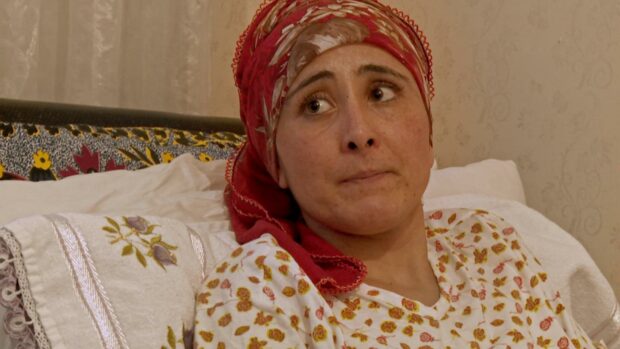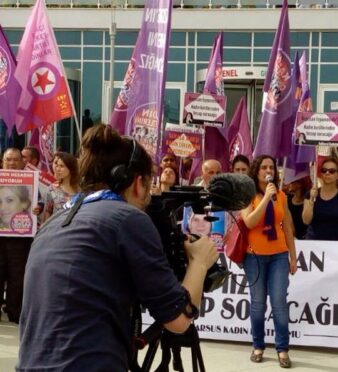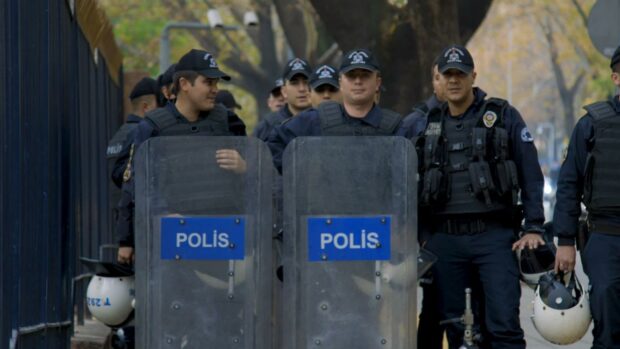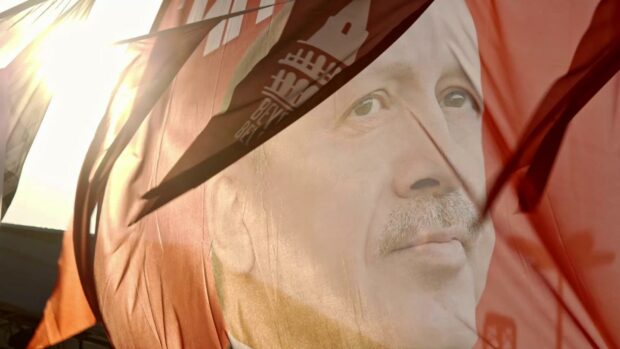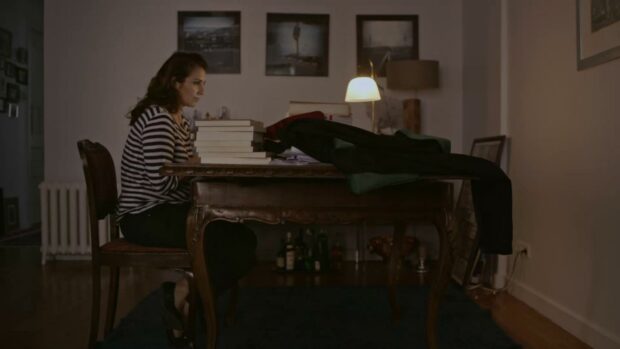A one-off screening of Dying to Divorce, the UK’s official Oscar entry for Best International Feature Film, will take place in Dundee this week – bringing a powerful message with it.
Keeping up the momentum from last week’s Reclaim The Night march, where hundreds of people took to the city’s streets to protest against gender-based violence, the film follows Turkish lawyer and activist Ipek Bozkurt as she battles what she calls a “pandemic” of violence against women.
The film exposes the harrowing reality of domestic abuse in Turkey through the stories of two women, Arzu and Kubra. Each survived horrific assaults at the hands of their husbands, and Ipek is striving to get justice for them.
And although the film is focused on Turkey, Ipek points out that the problem is not exclusive to one country.
‘It’s not a matter of borders anymore’
“Violence against women, gender-based discrimination – these concepts are global,” she says ahead of the release.
“And it’s really not a matter of borders anymore. Just like the Covid – since it’s beyond borders, it’s become a pandemic. And I think that violence against women is a sort of pandemic. It has been since the time of Adam and Eve.”
Director Chloe Fairweather reckons it’s both inevitable and “unfortunate” that Scottish audiences will relate to the film, saying: “I think what’s interesting about watching a situation that’s more extreme than your own… is it makes you realise and understand more about the situation in your own country.”
And with Dundee deemed the worst city in Scotland for domestic abuse in 2021, the film is certain to hit home.
But it’s true that in Turkey, the danger isn’t just on the ground or behind closed doors. It’s ingrained at the level of the law – that’s where lawyer Ipek comes in.
‘We had to be very, very careful’
Over five years, Chloe, 37, documented Ipek’s increasingly dangerous life as a lawyer, a woman and an activist as she fights for justice for these women against the backdrop of the attempted coup in 2016 and an explosive rise in domestic abuse and femicide.
It’s a live-or-die situation…”
And although Chloe and Ipek were the ones helping victims of abuse, they had to face the reality that as women, they themselves were not exempt from the danger of rampant gender-based violence.
“It’s very difficult being a woman in Turkey, or being LGBT, in Turkey,” admits Ipek.
“It’s difficult to be an animal, or a forest, in Turkey. If you’re from a fragile group, it’s a live-or-die situation.”
She is lucky. Educated at an all-girls American missionary school where she was taught feminist values from a young age, Ipek has managed to keep her home life free of domestic dangers.
“Physically, I don’t feel that danger in my house, from my partner or from my family,” she goes on. “But there’s always a suspicion that something could happen to me – in a car, or a cab for instance.
“I think that suspicion, that untrustworthy notion, is the thing that keeps you uneasy.”
For London-based Chloe, making the film was about helping to get the voices of Turkish women out there.
A dangerous story to tell
“We were careful to not put ourselves in really risky situations,” reveals Chloe when asked about the filming process.
“Saying that, on the ground filming, I noticed a distinct difference between filming in 2015 before the attempted coup (in 2016) and the crackdown and state of emergency that ensued afterwards. From that point onward, we had to be very, very careful.
“I don’t think (the Turkish government) would necessarily object to a film that highlighted domestic violence; I think they would object to the idea that people would speak out about it to an international audience, and criticise the government.”
The team behind the film were even turned away by Turkish film festivals, with the organisers saying that screening Dying For Divorce was too risky. However, Chloe says, they managed hold a few screenings in Turkey, albeit with a “low profile, because we don’t think it would be welcomed”.
This government’s politics are not about protecting women.”
Ipek Bozkurt, lawyer and activist
And the difficulties kept coming when, earlier this year, the rug was pulled out from under Ipek and her peers at activist platform We Will Stop Femicide, as Turkey’s leaders officially pulled out of the European Council’s Istanbul Convention.
What is the Istanbul Convention?
The Istanbul Convention is also known as the Council of Europe Convention on preventing and combating violence against women and domestic violence. It was, ironically, first ratified in Istanbul in 2012, and subsequently 34 other countries joined in.
Now, Turkish President Erdogan has withdrawn the country from the convention – effectively taking away Ipek’s whole legal foundation.
“To be frank, I was really upset,” she says. “It was like suffocating.
“Because all the arguments we create to define and design the Turkish law are based on international human rights documents. The Istanbul Convention is one of them. So it was like someone drew away this important, valuable carpet from underneath our feet.
“It’s upsetting not only as a woman activist, but also as a lawyer. Because a government’s policy can only be seen through its actions, you know?
“And this withdrawal from the Istanbul Convention just really put it on the table that this government’s politics are not about protecting women.
“But I think what makes activism much more exciting in countries where democracy is eroding, is that you always have to find something to do. You just have to be creative.
“Since I come from an organised, structured women’s organisation, even though I feel trapped at times, there is always solidarity.”
Worldwide solidarity with Oscar bid
And the women hope that worldwide solidarity will follow, now that the film as been picked for the Oscars race.
“It’s often in those very dark circumstances that you get to understand the nature of hope,” Chloe says.
“And that’s actually an element of the film – highlighting the hope and the commitment to keep moving forward that these women find within an increasingly challenging situation.”
For her, the Academy Award entry is doubly impressive, as Dying To Divorce is her feature film debut.
“We were really delighted and surprised (to hear about the Oscar bid),” she adds.
“We made this film on a shoe-string budget, often in our spare time, over five years. So it’s a wonderful thing that the belief we had in the film, has been recognised.
“And the real victory in it is that maybe more people will see the film. We’ll be able to share it more broadly, so more people will be able to hear (the women’s) voices.”
Dying To Divorce is screening at DCA Cinema Dundee on December 1 at 6pm. The film will be introduced by Ipek and Scottish producer Sinead Kirwan. The screening will be followed by a panel discussion.
If you are currently affected by any of the issues raised in this story, a range of useful links can be found here.
